Politics
Europe and Brazil Forge a New Economic Alliance: A Strategic Bet on Stability, Sustainability, and Shared Values
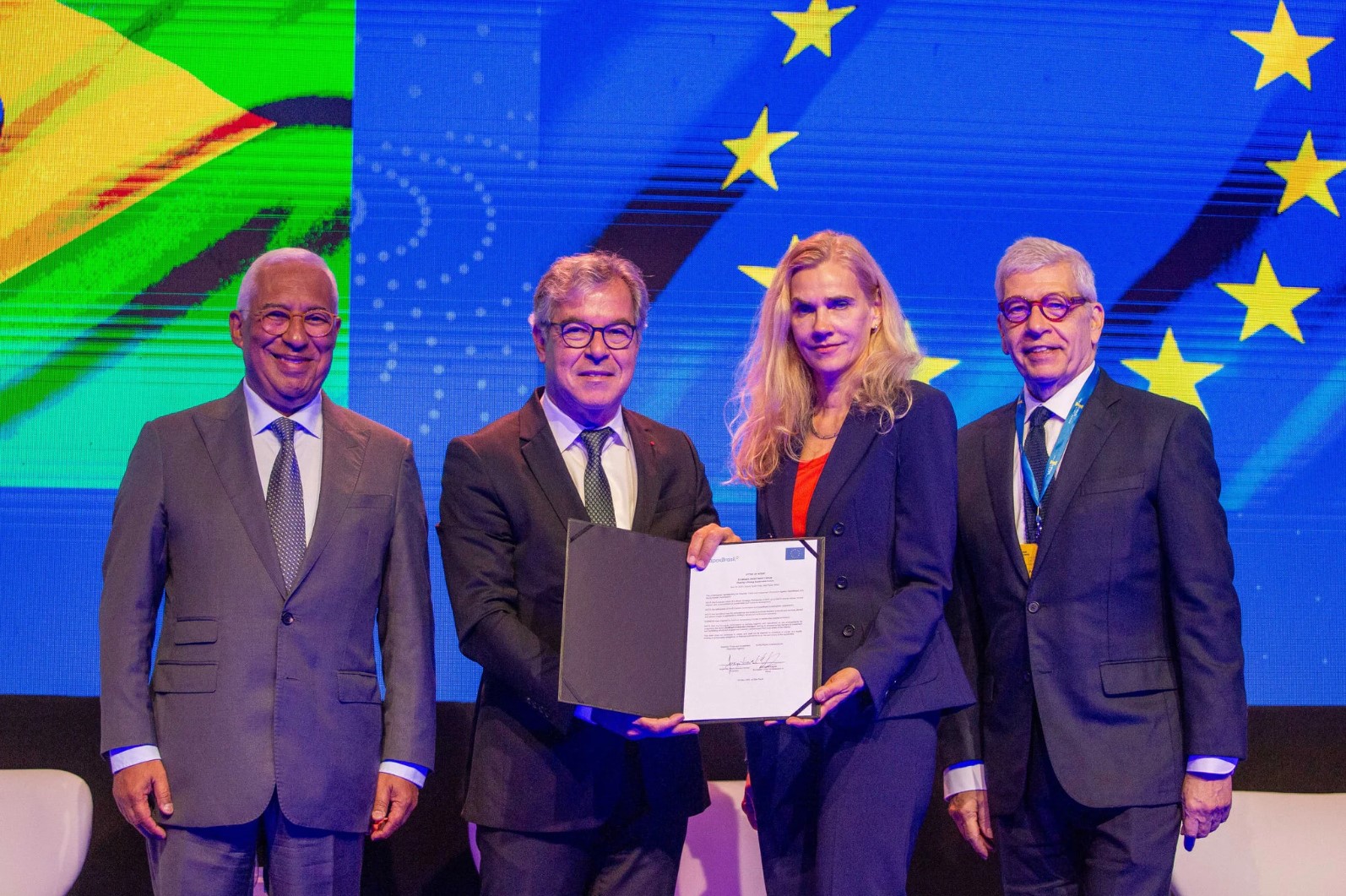
In a landmark speech delivered at the opening of the First EU-Brazil Investment Forum in São Paulo, European Council President António Costa laid out a compelling vision for a deepening economic alliance between the European Union and Brazil. Framed against a backdrop of global uncertainty—marked by geopolitical tensions, climate challenges, and shifting trade dynamics—the address underscored not only the strength of existing ties but also the vast potential for future collaboration.
The forum, held in Brazil’s economic powerhouse, was more than symbolic—it was strategic. As Costa noted, “This is the first Forum, but it follows a very long-standing relationship between Brazil and the European Union,” recalling that the two have been strategic partners since 2007. But what made this moment historic, he emphasized, was the mutual recognition that the time has come to transform that partnership into a robust geoeconomic force.
“When the outlook is uncertain, inaction is not an option,” said Costa. “But when the foundation is solid, we just need to move forward with confidence.”
A Partnership Built on Resilience and Growth
Despite global disruptions—from the pandemic to the war in Ukraine—the EU and Brazil have maintained a resilient economic relationship. According to data cited by Costa, bilateral trade grew by 65% over the past five years, and the EU remains Brazil’s second-largest trading partner, its largest foreign investor, and the top destination for Brazilian outbound investment.
European companies account for 39% of all foreign direct investment (FDI) in Brazil, outpacing investments from the U.S., China, and other regions. Since 2020, EU FDI in Brazil has grown at an annual rate of 11%, and today, Brazil ranks as the fourth-largest recipient of EU investment globally.
“Brazil is now the fourth largest destination of EU direct investment,” Costa stated. “And reciprocally, the EU is the main destination for Brazilian investment abroad, representing 35% of Brazil’s total foreign direct investment.”
The Mercosur Agreement: A Game-Changer in the Making
At the heart of this new phase is the recently concluded EU-Mercosur trade agreement, which Costa described as “a game-changer” for both sides. The deal, finalized in December 2024 after two decades of negotiations, will create the world’s largest free-trade zone, covering over 720 million people and nearly 20% of global GDP.
“The EU-Mercosur agreement will eliminate 90% of customs tariffs,” Costa explained. “It will reinforce our regions as a geoeconomic epicenter for global trade and investment.”
According to estimates from ApexBrasil (the Brazilian Agency for Promotion of Exports and Investments), the agreement could boost Brazilian exports to Europe by 10% within four years, particularly in agriculture, manufacturing, and green technologies. Broader trade flows are projected to grow by more than 30% by 2035, offering a stabilizing influence amid rising protectionism and unilateralism.
Greening the Future Together
One of the most ambitious aspects of the agreement is its commitment to sustainability. The EU has pledged €1.8 billion through its Global Gateway strategy to support a just ecological and digital transition in Mercosur countries, with particular focus on renewable energy, low-carbon steel production, and sustainable industrial value chains.
“We want to build industries capable of facing the future—with quality investments, high standards, local value creation, and decent jobs in renewable energies,”
Costa declared
The emphasis on green cooperation reflects shared priorities, especially as both blocs prepare to host major global summits later this year. Brazil will host COP30 in Belém , while the EU will co-host a summit with the Community of Latin American and Caribbean States (CELAC) in Colombia. These events offer opportunities to align climate policies and showcase how democratic societies can lead the way in decarbonization and biodiversity preservation.
A Message Against Isolationism
Costa’s speech was not only about economics—it was also a clear political statement. In a world increasingly defined by fragmentation and inward-looking policies, the EU and Brazil are positioning themselves as champions of multilateralism, rule-based trade, and open societies.
“Trade should be used to build bridges and prosperity—not walls and poverty,” Costa asserted.
He warned against unilateral tariff hikes and protectionist tendencies that distort markets and burden consumers. Instead, he called for renewed faith in international institutions and cooperative frameworks that uphold shared values such as territorial integrity, the rule of law, and democratic governance.
Strengthening the Middle Class Through Innovation and Integration
Beyond macroeconomic figures, Costa stressed the human dimension of this partnership. He argued that the EU-Brazil alliance must strengthen the middle class—a bulwark of social cohesion and democratic stability—by creating high-quality jobs, supporting innovation, and investing in education and public services.
“Democracy without a strong middle class, social justice, and a sustainable economy is fertile ground for populism and radicalism,” he warned.
To this end, the EU is expanding its presence in Brazil across sectors like digital transformation, clean technology, and scientific research. With academic freedom under threat in some parts of the world, Costa suggested that Brazil and the EU could jointly attract top talent and become leaders in cutting-edge innovation.
Looking Ahead: A Long-Term Vision
The First EU-Brazil Investment Forum marked more than a milestone—it signaled the beginning of a new chapter. Costa expressed optimism that the momentum would continue with a planned EU-Brazil Summit before the end of 2025, and further dialogues between public and private stakeholders.
“This first Forum strengthens our most precious common resource: mutual trust,” he concluded. “Trust from Brazil in the EU—and from the EU in Brazil.”
As the Atlantic winds continue to connect Europe and South America, the promise of a more integrated, stable, and sustainable future is no longer a distant dream—but a tangible goal being built one partnership at a time.
Source link
Politics
‘Shaping tomorrow and navigating uncertainty: the future of the euro area’ – speech by the Eurogroup President, Paschal Donohoe, at Centre for Financial Studies, Goethe University
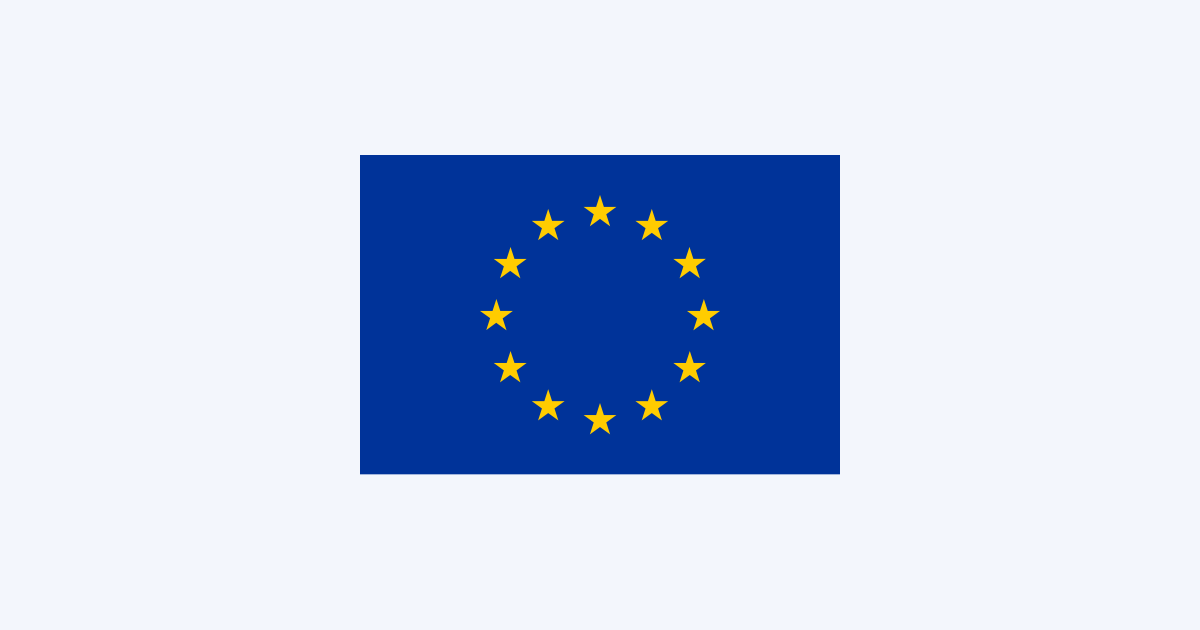

© FRVS+MPCP 2022. The European Times® News is registered as an EU Trademark. All rights reserved. The European Times® and the logo of The European Times® are EU trademarks registered by FRVS+MPCP.
Members/Partners of

About Us
Popular Category
DISCLAIMER OPINIONS: The opinions of the authors or reproduced in the articles are the ones of those stating them and it is their own responsibility. Should you find any incorrections you can always contact the newsdesk to seek a correction or right of replay.
DISCLAIMER TRANSLATIONS: All articles in this site are published in English. The translated versions are done through an automated process known as neural translations. If in doubt, always refer to the original article. Thank you for understanding.
DISCLAIMER PHOTOS: We mostly used photos images that are readily available online, from free sources, or from the people promoting the news. If by any chance it happens that we have used one of your copyrighted photos, please do not hesitate to contact us and we will take it down without question. We do not make profits as this is a not for profit project to give voice to the voiceless while giving them a platform to be informed also of general news, and it is completely free.
Editor Picks
Politics
Nature, climate, and circular economy projects emerge as winners at the 2025 LIFE Awards
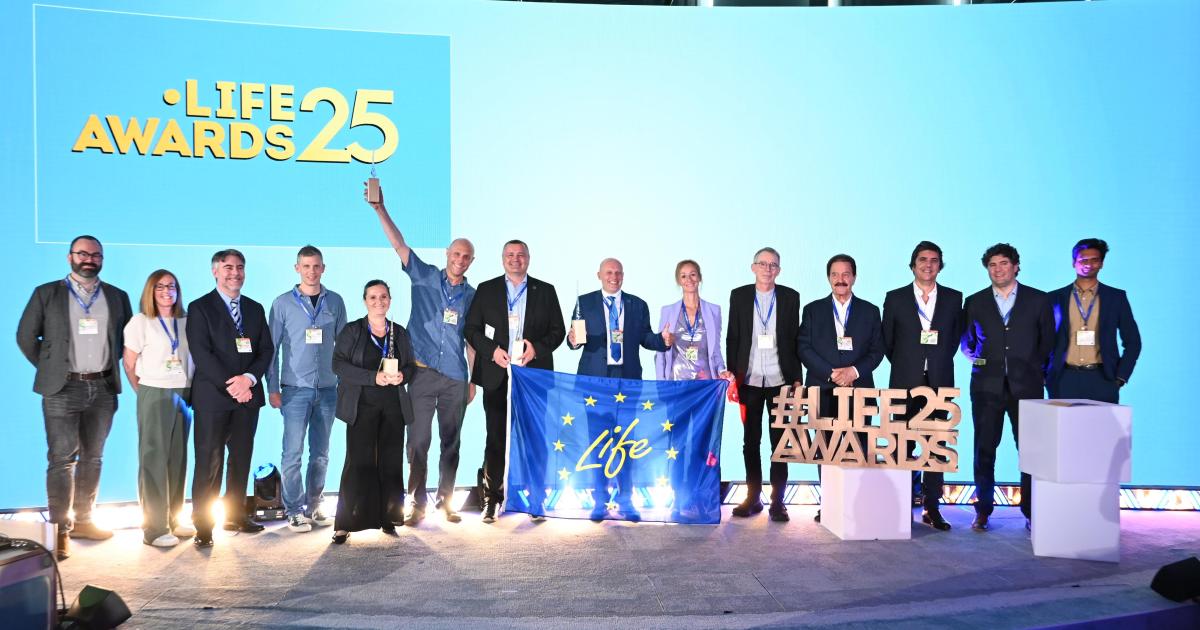
Three outstanding LIFE projects were awarded the LIFE Awards 2025, held as part of European Green Week to recognise excellence in nature conservation, circularity and climate resilience.
The winners were selected from nine finalists in three categories: nature, circular economy and quality of life, and climate action. Together, they represent some of the most creative and impactful initiatives helping to create a greener Europe.
The LIFE Award for Nature went to LIFE Lynx, which brought together conservationists, hunters and local communities to successfully reverse the decline of the Alpine Lynx in the Dinaric Alps. The runners-up in this category were LIFEraisedbogs and LIFE living Natura 2000.
LIFE Lynx also won the LIFE Citizens’ Prize, awarded to the project that received the most public support in an online vote.
The winner of the LIFE Award for Circular Economy and Quality of Life was LIFE POPWAT, which piloted a new nature-based technology to remove hazardous man-made chemicals from contaminated water in Czechia and Poland. The runners-up in this category were LIFE EMERALD and LIFE LANDSCAPE FIRE.
The winner of the LIFE Award for Climate Action was LIFE DESERT-ADAPT, a project combating desertification improving soil quality, improved water retention capacity and improved ecosystem resilience in Italy, Spain and Portugal. The runners-up in this category were NATURAL HVACR 4 LIFE and LIFE Natur’Adapt.
This year a special category was introduced – “Rising Star Recognition” – for projects making a remarkable contribution to the circular economy. This special Award went to LIFE RE-ZIP, a Danish project which aims to replace thousands of tonnes of commercial packaging waste with more environmentally friendly reusable eCommerce packaging. When the project ends in 2026, more than 120 million reusable packages will be in circulation, with 17,000 tonnes of cardboard and plastic waste saved and more than 300 jobs created.
About the LIFE Awards
The LIFE Awards celebrate the most impactful projects implemented under the LIFE Programme each year. Since 1992, LIFE has funded thousands of projects focused on environmental protection and climate action.
The LIFE Awards 2025 were awarded by a jury of experts including Konstantinos Bakoyannis, Chair of the Commission for the Environment, Climate change and Energy (ENVE) of the European Committee of the Regions; Sara Segantin, a writer, journalist, science storyteller and EU Climate Pact Ambassador and Hans Bruyninckx, Professor of Environmental Governance at the University of Antwerp, former European Environment Agency (EEA) Director, and Member of the International Resource Panel.
The jury commended the winners for the immediate and long-term environmental, economic and social improvements of their projects. They recognised their innovation, scale-up potential, and relevance to the EU’s decarbonisation, circularity and biodiversity goals.
Full list of LIFE Awards 2025 finalists
Nature Protection
LIFE Lynx: bringing together conservationists, hunters and local communities to successfully reverse the decline of the Alpine Lynx in Slovenia and Croatia.
LIFEraisedbogs: restoring over 900 hectares of rare raised peat bogs across 10 different sites in Denmark.
LIFE living Natura 2000: campaigning for understanding, acceptance and appreciation of the Natura 2000 network in Germany.
Circular Economy and Quality of Life
LIFE EMERALD: reducing air pollution and improving citizens’ health in Ireland.
LIFE POPWAT: piloting new technology to remove hazardous man-made chemicals from contaminated water in Czechia and Poland.
LIFE LANDSCAPE FIRE: combining traditional and modern fire prevention techniques to reduce large-scale forest fires in Portugal and Spain.
Climate Action
LIFE DESERT-ADAPT: tackling desertification by improving soil health, enhancing water retention, and building ecosystem resilience in Italy, Spain and Portugal.
NATURAL HVACR 4 LIFE: developing viable natural air-conditioning systems to replace climate-damaging F-gases (fluorinated greenhouse gases) in Belgium, Germany, France and Czechia.
LIFE Natur’Adapt: promoting climate change adaptation tools among 1 300 managers at 21 natural protected sites across France.
About the LIFE Programme
The LIFE Programme is the EU’s funding instrument for the environment and climate action. It has been bringing green ideas to life since 1992 and, to date, has co-financed over 6,000 projects across the EU and in third countries. For the 2021-2027 period, the European Commission has increased LIFE Programme funding by almost 60%, up to €5.4 billion, and included the clean energy transition sub-programme.
The recently-announced work programme for the implementation of the LIFE Programme in 2025-2027 established an overall budget of €2.3 billion for projects tackling circular economy, zero pollution, nature and biodiversity, climate mitigation and adaptation, and clean energy. The LIFE Programme is managed by the European Climate, Infrastructure and Environment Executive Agency (CINEA).
For further details on the LIFE Awards 2025, please visit the following link.
Politics
Eurojust supports successful operation against human traffickers

Authorities have tracked down and dismantled a human trafficking network operating in Switzerland. The criminal group recruited young vulnerable women in Romania for sexual exploitation. The close cooperation between investigators from both countries, supported by Eurojust and Europol, culminated in an action day on 3 June, during which 18 suspects were arrested.
The criminal group targeted individuals from disadvantaged communities in Romania. The perpetrators approached their victims on social media, luring them with false romantic promises or offers for them to perform sex work abroad under favourable conditions. Once the victims accepted these offers, they were taken abroad to provide sexual services on escort websites and in rented flats. They were kept under constant surveillance by the criminal group and subjected to appalling conditions, working long hours in degrading and unsafe circumstances. The victims were expected to work continuously, regardless of their mental or physical state. Even visibly pregnant women were forced to work without rest.
Investigations into the group uncovered a large-scale network that had been operating across Europe for over seven years. In 2022, its members moved to Switzerland to continue their activities in several Swiss German-speaking cities, particularly Zurich. The suspected leader of the group started to recruit new members, setting up his own criminal school, where he taught techniques enslaving and exploiting victims. In some cases, victims were traded between members in exchange for money or used as stakes in gambling.
A joint action day to dismantle the criminal group took place on 3 June. Authorities arrested 13 suspects in Romania and five in Switzerland. The alleged victims were brought to safety and given support from a counselling service specialising in human trafficking. In addition to targeting the members in Switzerland, the investigations also focused on individuals in Romania who provided logistical support and laundered the proceeds from the criminal activities.
The successful operation was made possible through close cooperation between Romanian and Swiss authorities under the coordination of Eurojust and Europol. A joint investigation team, set up and funded by Eurojust, ensured the authorities could work together quickly and efficiently. Europol supported the national authorities throughout the investigation by facilitating the exchange of critical intelligence and providing expert analytical support, including the preparation of link charts on the organised crime group. On the action day, Europol provided remote assistance to investigators by cross-checking operational data in real time.
The following authorities carried out the operation:
- Romania: Prosecutor’s Office attached to the High Court of Cassation and Justice – Directorate for Investigating Organised Crime and Terrorism, Bacau Territorial Service; Police Brigade for Combating Organised Crime Iași, Police Service for Combating Organised Crime Neamț; Neamț and Bacău County Gendarmerie Inspectorates; Mobile Gendarmerie Unit Bacău.
- Switzerland: Public Prosecutor’s Office of the canton of Zurich; Zurich City Police
Authorities have tracked down and dismantled a human trafficking network operating in Switzerland. The criminal group recruited young vulnerable women in Romania for sexual exploitation. The close cooperation between investigators from both countries, supported by Eurojust and Europol, culminated in an action day on 3 June, during which 17 suspects were identified.
Source link
-
EU & the World3 days ago
Aurora Borealis Forecast: Where & When to See the Northern Lights Tonight
-

 Sports4 days ago
Sports4 days agoChampions League Final 2024-2025: PSG-Inter, official lineups
-

 EU & the World7 days ago
EU & the World7 days agoWhat Is Kevin Costner’s Net Worth? How Much the Actor Makes
-

 EU & the World7 days ago
EU & the World7 days ago‘Survivor’ Season 50 Cast: See Which Stars Are Competing
-

 EU & the World7 days ago
EU & the World7 days agoTodd Chrisley’s Kids: Everything To Know About The 5 Children He Shares With Julie
-
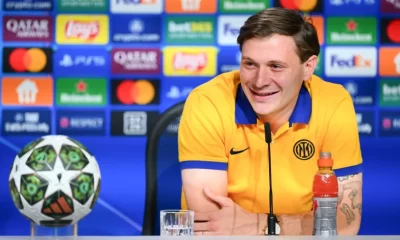
 Sports5 days ago
Sports5 days agoPSG-Inter, Nicolò Barella jokes about Gianluigi Donnarumma
-

 EU & the World4 days ago
EU & the World4 days agoRihanna’s Parents: About Her Late Dad Ronald Fenty & Mom Monica Braithwaite
-
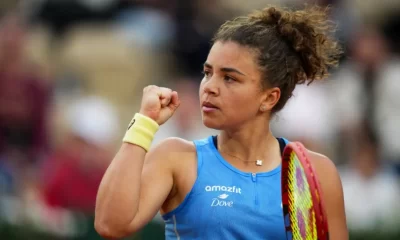
 Sports7 days ago
Sports7 days agoJasmine Paolini wants to try not to think about the triumph in Rome









